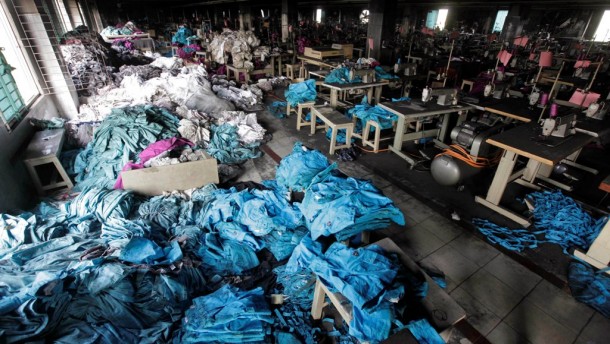ZURICH — A group of mainly European retailers has finalized a plan to conduct coordinated inspections of factories in Bangladesh in an attempt to prevent a repeat of the Rana Plaza disaster that killed 1,129 people in April.
The collapse of Rana Plaza, a factory built on swampy ground outside Dhaka, on April 24 ranks among the world’s worst industrial accidents and has galvanized brands to look more closely at their suppliers.
The new accord was launched by trade unions in May and signed by 70 brands, including the world’s two biggest fashion retailers, Inditex and H&M, which have agreed to accept legal responsibility for safety at their Bangladesh factories.
But a number of US chains, including Wal-Mart, Gap , Macy’s, Sears and JC Penney, have shunned the deal, saying that it gives labor unions too much control over ensuring workplace safety and have proposed a non-binding initiative.
The largely European plan, coordinated by Switzerland-based unions IndustriALL and UNI Global, involves the creation of a team of inspectors to evaluate fire, electrical, structural and worker safety in factories supplying signatory brands.
In a report published on Monday, the implementation team said that all 70 signatory brands had to provide full details of the Bangladesh factories from which they source goods—the first time such data would be collected or shared in such a comprehensive way.
Every factory will undergo an initial inspection within the next nine months, with repairs initiated where necessary and a process put in place to allow companies or workers to report problems with buildings that pose an immediate risk.
Employees were forced to go to work at Rana Plaza even after huge cracks appeared in the walls a day before the building collapsed.
About 3.6 million people work in Bangladesh’s clothing sector, making it the world’s second-largest apparel exporter behind China. The industry employs mostly women, some of whom earn as little as $38 a month.
Bangladesh has pledged to improve safety, but it has not pledged new money to relocate dangerous buildings.
“Brand signatories are responsible to ensure that sufficient funds are available to pay for renovations and other safety improvements,” Monday’s report said.
Tesco, the world’s third-largest retailer and one of the accord signatories, last month said that it has stopped sourcing clothes from a Bangladesh site because of safety concerns.
North American retailers and trade associations are believed to be putting the finishing touches on their own Bangladesh safety agreement. Jason Grumet, president of the Washington think-tank helping to coordinate the effort, last month said the process was on track to be completed in July.
European, Bangladeshi and US officials will meet in Geneva on Monday for talks aimed at improving safety conditions and discussing the country’s trade benefits, which the EU has threatened to suspend.
Tax concessions offered by Western countries and the low wages paid by the manufacturers have helped to turn Bangladesh’s garment exports into a $19 billion a year industry, with 60 percent of clothes going to Europe.
In late June, US President Barack Obama cut off US trade benefits for Bangladesh in a mostly symbolic response to conditions in the country’s garment sector, given that clothing is not eligible for US duty cuts.

















